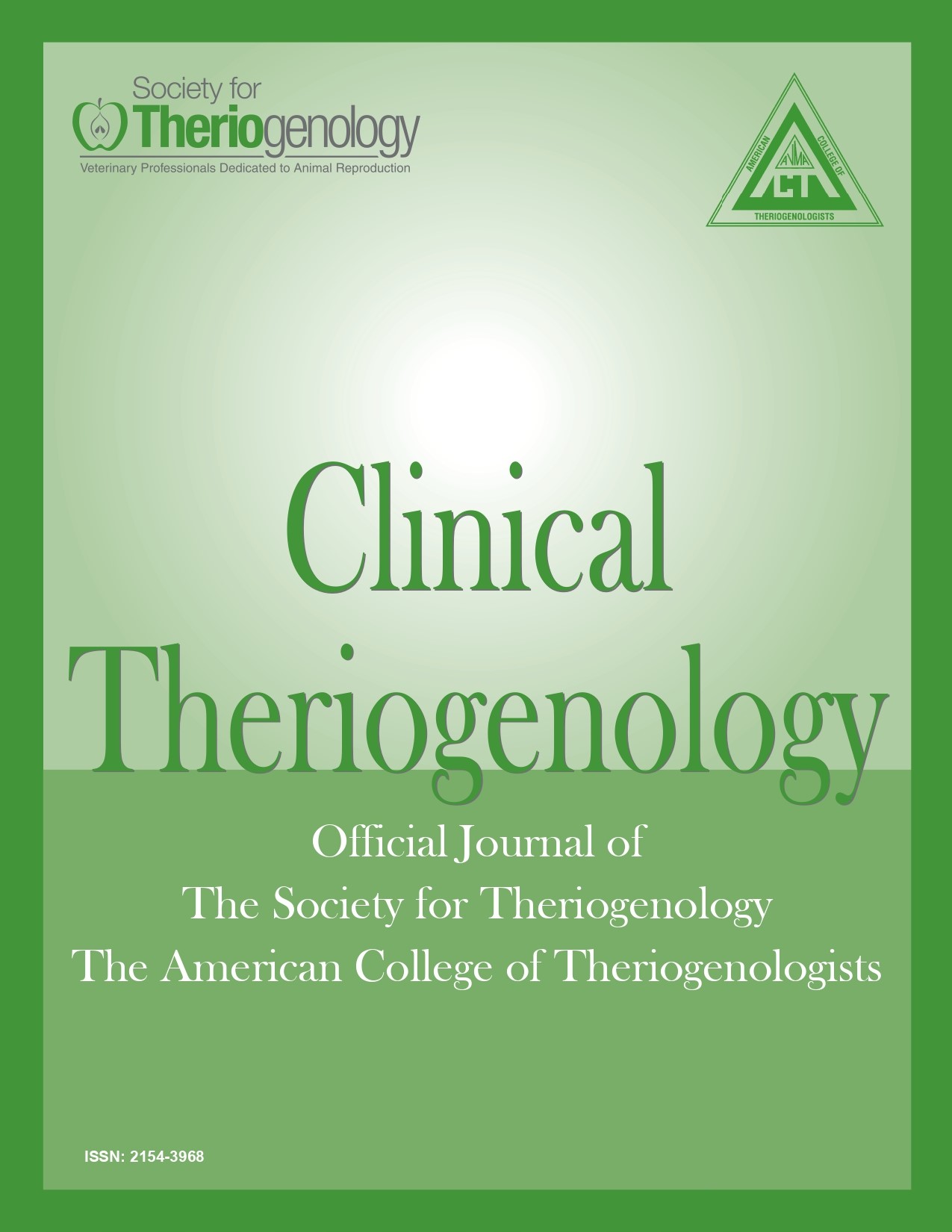Reproductive and health outcomes of horses affected by focal mucoid placentitis
Abstract
Focal mucoid (nocardioform) placentitis occurs sporadically worldwide and occasionally has been associated with local epidemics of disease in central Kentucky. Objective was to quantify the effects of focal mucoid placentitis on a farm during spring 2020 outbreak. Outcomes were prospectively identified early in the spring and data were collected in a single cohort of mares during 2020-2021 and on their foals during 2020-2022. Focal mucoid placentitis was diagnosed in 36 of 162 mares; 6 foals died at birth and 30 foals (83%) were viable compared to 119 of 126 viable foals (94%) from normal mares. Foals born to mares with placentitis weighed 10 lb less compared to those from healthy mares, received colostrum that was slightly lower in quality and had ~ 30% lower blood IgG concentrations. However, postnatal foal survival, incidence of infectious or orthopedic foal diseases, sale values, and racing performances were not different between these 2 groups. Focal mucoid placentitis did not recur in subsequent years and the reproductive performance of mares with this form of placentitis was not affected in the subsequent breeding season. Study suggested that although the disease may be underdiagnosed via farm-submitted samples, surviving foals and affected mares were able to overcome the effects of this condition and their performance was comparable to their peers in the absence of additional treatment.
Downloads
References
2. Erol E, Sells SF, Williams NM, et al: An investigation on of a recent outbreak of nocardioform placentitis caused abortions in horses. Vet Microbiol 2012;158:425-430. doi: 10.1016/j.vetmic.2012.02.023
3. Fedorka CE, Scoggin KE, Ruby RE, et al: Clinical, pathologic, and epidemiologic features of nocardioform placentitis in the mare. Theriogenology 2021;171:155-161. doi: 10.1016/j.theriogenology.2021.05.023
4. Donahue JM, Williams NM: Emergent causes of placentitis and abortion. Vet Clin North Am Equine Pract 2000;16:433-456. doi: 10.1016/s0749-0739(17)30088-3
5. Erol E, Williams NM, Sells SF, et al: Antibiotic susceptibility patterns of Crosiella equi and Amycolatopsis species causing nocardioform placentitis in horses. J Vet Diagn Invest 2012;24:1158-1161. doi: 10.1177/1040638712462377
6. Cattoli G, Vascellari M, Corro M, et al: First case of equine nocardioform placentitis caused by Crosiella equi in Europe. Vet Rec 2004;154:730-731. doi: 10.1136/vr.154.23.730
7. Christensen BW, Roberts JF, Pozor MA, et al: Nocardioform placentitis with isolation of Amycolatopsis spp in a Florida-bred mare. J Am Vet Med Assoc 2006;228:1234-1239. doi: 10.2460/javma.228.8.1234
8. Donahue JM, Williams NM, Sells SF, et al: Crosiella equi sp. nov., isolated from equine placentas, Int Syst Evol Microbiol 2006;52:2169-2173. doi: 10.1099/ijs.0.02257-0
9. Hanlon DW, McLachlan D, Gibson I: The first reported case of equine Nocardioform placentitis in New Zealand. N Z Vet J 2016;64:198-199. doi: 10.1080/00480169.2015.1120166
10. Volkmann DH, Williams JH, Henton JH, et al: The first reported case of equine nocardioform placentitis in South Africa. J S Afr Vet Assoc 2001;72:235-238. doi: 10.4102/jsava.v72i4.659
11. Canisso I, Ball BA, Erol E, et al: Attempts to induce nocardioform placentitis (Crossiela equi) experimentally in mares. Equine Vet J 2015;47:91-95. doi: 10.1111/evj.12249

This work is licensed under a Creative Commons Attribution-NonCommercial 4.0 International License.
Authors retain copyright of their work, with first publication rights granted to Clinical Theriogenology. Read more about copyright and licensing here.





